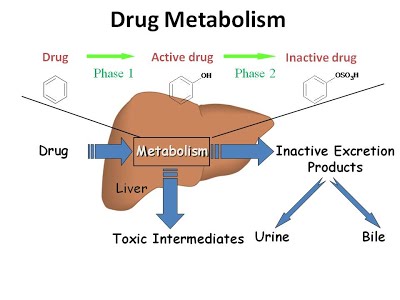
Is Ketamine Safe? What you need to know about it.
Is ketamine safe?
If you are of a certain age, you remember the days when ketamine was a street drug, and it is one of the first questions you are going to ask when your doctor suggests taking ketamine to manage your depression. Ketamine, also known as ‘Special K’ or ‘Vitamin K’, belongs to a class of medicines called dissociative anesthetics. It was first introduced in 1962 during the Vietnam War as an alternative to phencyclidine (PCP), which was later to be treated as a controlled substance by the US Government. Over the ensuing decades, Ketamine has been used for surgical procedures and the treatment of pain. Recently, its antidepressant effects have been better understood, and as a result, it is increasingly common to see it prescribed as a treatment for emotional suffering.
Table of Contents
How Long Does Ketamine Stay In Your System

How long ketamine stays in your system depends on how it is administered. Ketamine is quickly metabolized by the liver into less active metabolites after administration, and approximately 90% of ketamine is excreted in the urine in the form of metabolites. Ketamine’s half-life, which is the time it takes for the total amount of drug in the body to be reduced by 50%, is about 2.5 hours in adults and 1 to 2 hours in children. In terms of its effects, ketamine is mostly eliminated after 4-5 half-lives and should be out of an adult’s system in about 10 to 12.5 hours, depending on age, body mass, metabolic rate, drug dosage, and route of administration can affect the duration and elimination of the drug. It has been found that ketamine and its metabolites can be detected in:
- Hair up to 4 months after a single dose.
- Scalp samples were collected by a wet cotton swab up to 48 hours after administration of the drug. In a study of urine samples collected from hospitalized.
- In the urine of children who had received ketamine as an anesthetic up to 11 days after drug administration and its metabolites could be detected for up to 14 days.
What Are The Side Effects of Ketamine on Humans
Ketamine infusion side effects are dose-dependent. At low doses it:
- Raises heart rate.
- Causes cognitive impairment during intoxication, including speech and executive function.
- Induces mild psychedelic effects such as perceptual changes and psychotic-like experiences,
- Creates a dissociative state, where their mind feels separated from their body, manifesting as a feeling of depersonalization.
At higher doses of ketamine:
- The anesthetic quality of ketamine becomes more pronounced.
- People may find it difficult to move and may feel numb, and can experience more vivid hallucinations; This is the ‘k-hole’ some users talk about.
- Amnesia can occur. This is a danger of recreational ketamine use as it leaves people vulnerable to assault from others in this state or can put themselves in danger by not being aware of their surroundings.
Is Ketamine Safe?
Now that we reviewed that effects of ketamine, in answering the question of “Is ketamine safe”, we need to dive a little deeper to understand when ketamine is and isn’t safe. Currently, ketamine is the only psychedelic substance that has received approval from the Food and Drug Administration (FDA). That says a lot about its effectiveness and safety – before a drug can surpass this milestone, it must have demonstrated high degrees of tolerance and safety in many animal and human trials. Its ability to reverse depression symptoms quickly makes it a potent and safe drug for patients compared to existing antidepressants. Further, studies have also found ketamine to be broadly free from interactions with other medications.
How to Ensure Ketamine Therapy Safety
While ketamine is generally considered to be safe, its safety is more broadly assured if taken in the presence of a medical professional. Ketamine is widely available in the black market (at a lower cost per dose), leading some advocates to prefer to save money, purchase it online and self-administer the drug. While the savings are obviously compelling, self-administration can create serious complications if the drug is abused or misused; further, the medical professional’s guidance through your ‘trip’ can greatly enhance the therapeutic benefits that you signed up for in the first place. So, the best approach is to contact a professional ketamine treatment provider and have them coordinate your care.
While broadly safe for use in treatment, ketamine can have complications: adverse effects due to undiagnosed heart disease have been reported; the use of other recreational drugs or nicotine can also cause complications. These conditions need to be assessed by your medical practitioner to ensure that ketamine treatment will be safe for you.
Is Ketamine Safe for Breastfeeding
There has been very little research into breastmilk levels of ketamine after administration to humans. Minimal existing data indicates that ketamine use in nursing mothers may not affect the breastfed infant or lactation. Until more data are available, ketamine should only be used in low doses with careful monitoring for sedation and poor feeding during breastfeeding. Some research indicates that women who had a caesarian delivery under spinal anesthesia and received i.m. ketamine 0.5 mg/kg bolus 10 mins after birth followed by 2 μg/kg/min. i.v. continuous infusion for 12 hrs did not have negative impact on their ability to breastfeed or breastfeeding duration.
Is Ketamine Safe During Pregnancy
- Ketamine was widely used in obstetric anesthesia soon after its invention. It was gradually less considered, if not forgotten, by medical community with the appearance of new general anaesthetics and more effective neuraxial analgesia. Based on the state of current research, medical scientist believe that
- Ketamine shows promise as an analgesic during labor. There is still alot more research to do to confirm the safety, and effectiveness, of ketamine relative to other currently available pain medications.
- There is evidence that ketamine, when used as part of an epidural analgesic, works well in harmony with other analgesics.
- The study of ketamine’s effects (either positive or negative) on the fetus’ developing brain continues, with some conflict in the evidence presented to date.
Is Ketamine Safe for Malignant Hyperthermia
While malignant hyperthermia that develops after succinylcholine or volatile anesthetics such as halothane, and side effects from antihistamines like diphenhydramine and anticholinergics such as benztropine, can mimic signs of ketamine intoxication, non-volatile anesthetic agents and depolarizing muscle relaxant, of which ketamine is one, are considered safe. This is something to discuss with your doctor and not a decision you make based on something you read on a blog.
Is Ketamine Safe in Renal Failure
There is a sparse amount of research as to the safety of using ketamine in patients with renal failure. This is something to discuss with your doctor and not a decision you make based on something you read on a blog.
Is Ketamine Addictive
Ketamine has been classified as a Schedule III controlled substance due to its potential for abuse and addiction. It can be abused in a number of ways, including via injection, snorting, or orally. It’s generally sold as a fine white powder after being converted from a liquid state. Abusing ketamine often leads to a psychological dependence. Over time, the user develops a tolerance, meaning they have to take more to get the same effects. Signs that someone you care about may be using ketamine include:
- Redness of the skin
- Slurred speech
- Depression
- Rapid eye movements
- Insomnia
- Irritability
- Antsy behavior
- Loss of coordination
Is Ketamine Safe for Kids
Ketamine is a safe and effective procedural sedation option for children in the emergency department setting; Sedation for procedures is more commonly used in children than adults, to achieve motion control and cooperation. In children, many say ketamine is an ideal choice due to the fact that it is short acting, a highly effective sedative, and preserves cardio-respiratory stability. This area of ketamine use still needs to be researched further and you should discuss the issue your with your health care provider.
Is Ketamine Safe for Depression
Yes, ketamine is not only effective, but it may well be one of the most effective treatments for mental health disorders. Scientific studies and compelling anecdotal reports repeatedly point to ketamine’s efficacy. Some studies have shown that its active ingredients contain many neuroprotective qualities, which may be anti-inflammatory and memory-enhancing, possibly due to its ability to cause a change in serotonin activity in the brain. The following are some of the conditions that have been treated with ketamine therapy:
Ketamine Treatment for Depression
Patients suffering from treatment-resistant depression have benefited immensely from the antidepressant effects of ketamine. Research shows that it increases the neurotransmitter connections in the brain, a region responsible for mood. It is fast-acting, producing results within hours of administration, much faster than the effects of other popular antidepressants – while most require weeks or months of use before showing any notable effects, ketamine can reduce depression symptoms within hours.
Ketamine Treatment for Suicidal Thoughts
Depression, of course, can lead to many other disorders, such as substance abuse and suicidal thoughts. The good news is that ketamine can also effectively reduce the symptoms of suicidality. In 2000, clinical studies showed that 60% of participants had a reduction in suicidal thoughts as early as 4.5 hours after taking a single dose of ketamine, and these findings were subsequently reinforced many times.
Ketamine Treatment for Stress and Chronic Pain Management
Ketamine can inhibit brain degeneration and stimulate the production of antioxidants, which protect the brain by neutralizing unstable molecules and the harmful effects of oxidative stress. In addition, there is ample proof demonstrating the efficacy of ketamine in treating severe pain, such as fractures, trauma, abdominal pain, low back pain, and pain in the extremity.
Ketamine Treatment for Anxiety
Ketamine is sometimes recommended as anxiety therapy because of its hallucinogenic properties that contain anxiolytic (calming) effects. In a 2017 study, ketamine demonstrated a positive effect in the treatment of various anxiety disorders, including obsessive-compulsive disorder (OCD), social anxiety disorder (SAD), and general anxiety disorder (GAD). In the study, 12 participants with a range of anxiety disorders were injected with a single dose of ketamine. Within 1 hour, patients reported reduced anxiety. The benefits from that single dose were sustained for up to 7 days.
Related Articles
- Check out Frshminds’ Guide to Ketamine Clinics to learn about ketamine in order to select a clinic that meets your needs.
- 5 Things You Should Know Before Starting Ketamine Infusions for Bipolar Depression
- The Secret to Getting Health Insurance to Cover Ketamine Therapy
- Your First Ketamine Therapy Session: What to Expect
- Ketamine as a Rapid Onset Antidepressant
- A Ketamine Clinic Near Me: Roots Behavioral Health
- A Ketamine Clinic Near Me: The Infusion Clinic of Ocala
- A Ketamine Clinic Near Me: Dr Ken Starr in Arroyo Grande
- Ketamine Assisted Psychotherapy (KAP): Demographics, Data and Outcomes
- Meet ‘Sarah’, She Uses Ketamine Infusion Therapy for Depression
- Talking with a Ketamine Infusion Doctor: Dr. Franklin
References
https://link.springer.com/article/10.1007/s40263-018-0519-3
http://www.chm.bris.ac.uk/motm/ketamine/introduction.htm
https://www.medicalnewstoday.com/articles/302663
https://www.drugfreeworld.org/drugfacts/prescription/ketamine.html
https://www.ncbi.nlm.nih.gov/pmc/articles/PMC4258981/
https://www.webmd.com/depression/features/what-does-ketamine-do-your-brain#1
https://www.hindawi.com/journals/arp/2020/5798285/
https://www.ncbi.nlm.nih.gov/pmc/articles/PMC3116441/pdf/nihms293810.pdf
https://bpspubs.onlinelibrary.wiley.com/doi/epdf/10.1111/bcp.12094
https://erowid.org/chemicals/ketamine/ketamine_effects.shtml

Comments